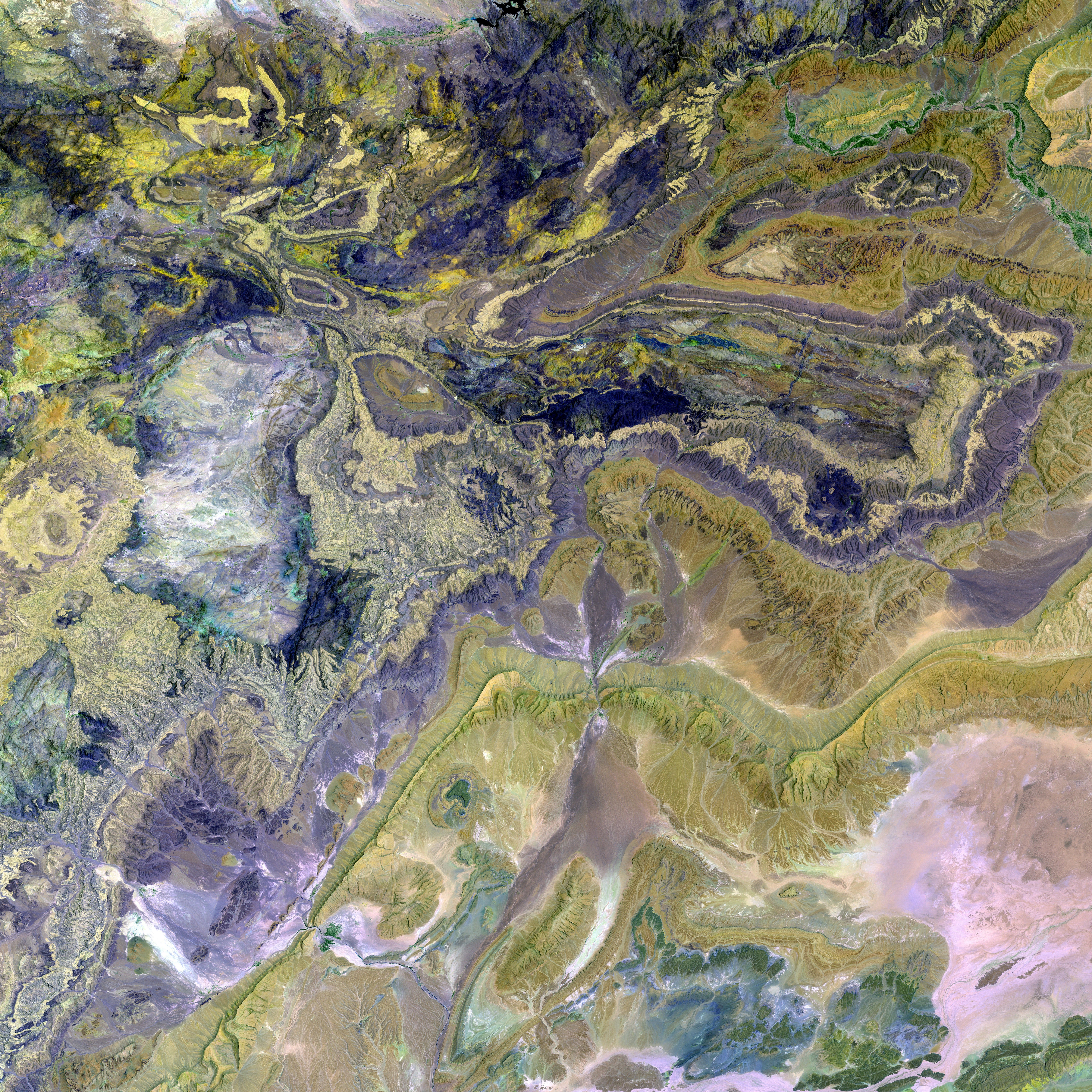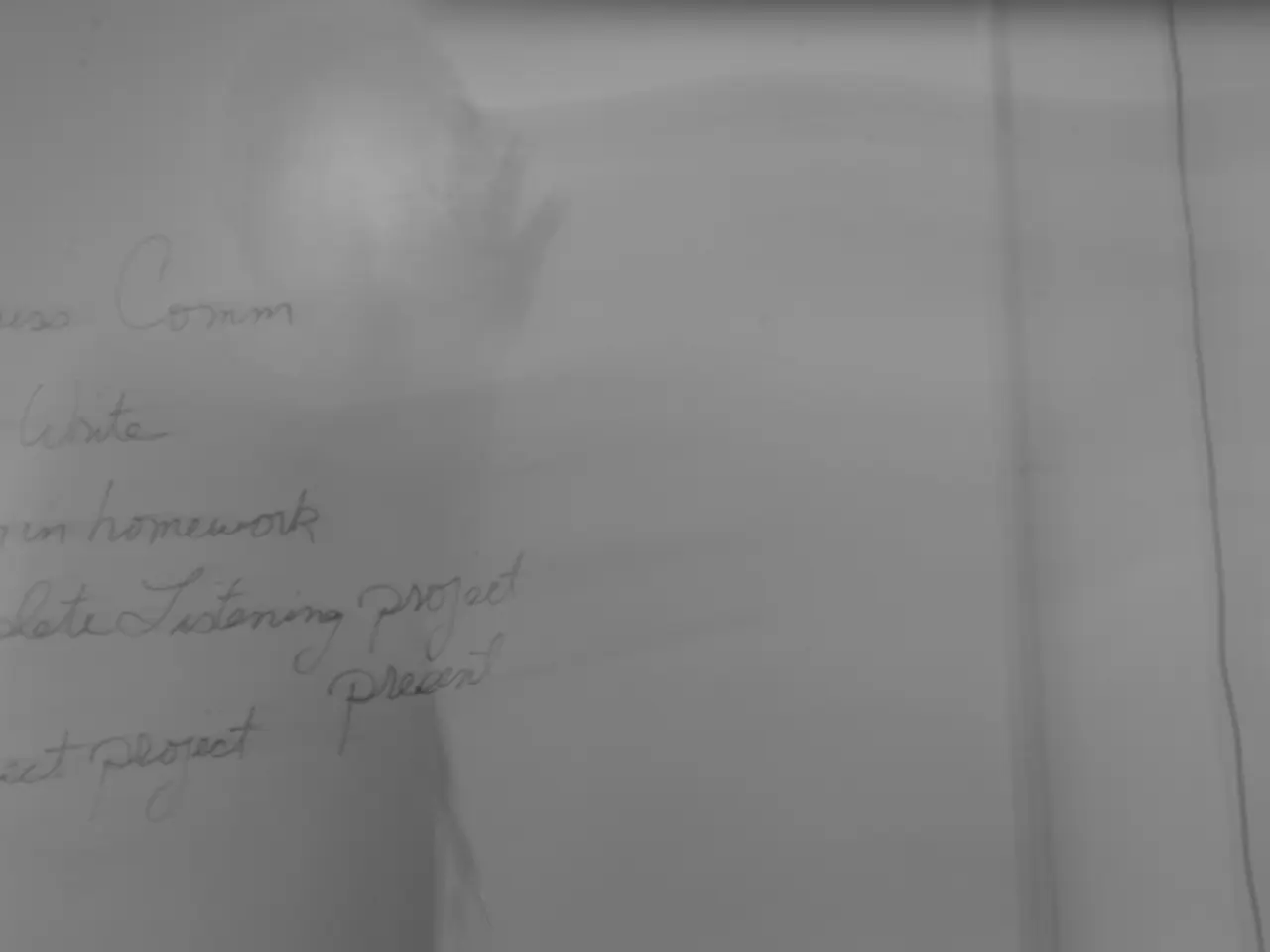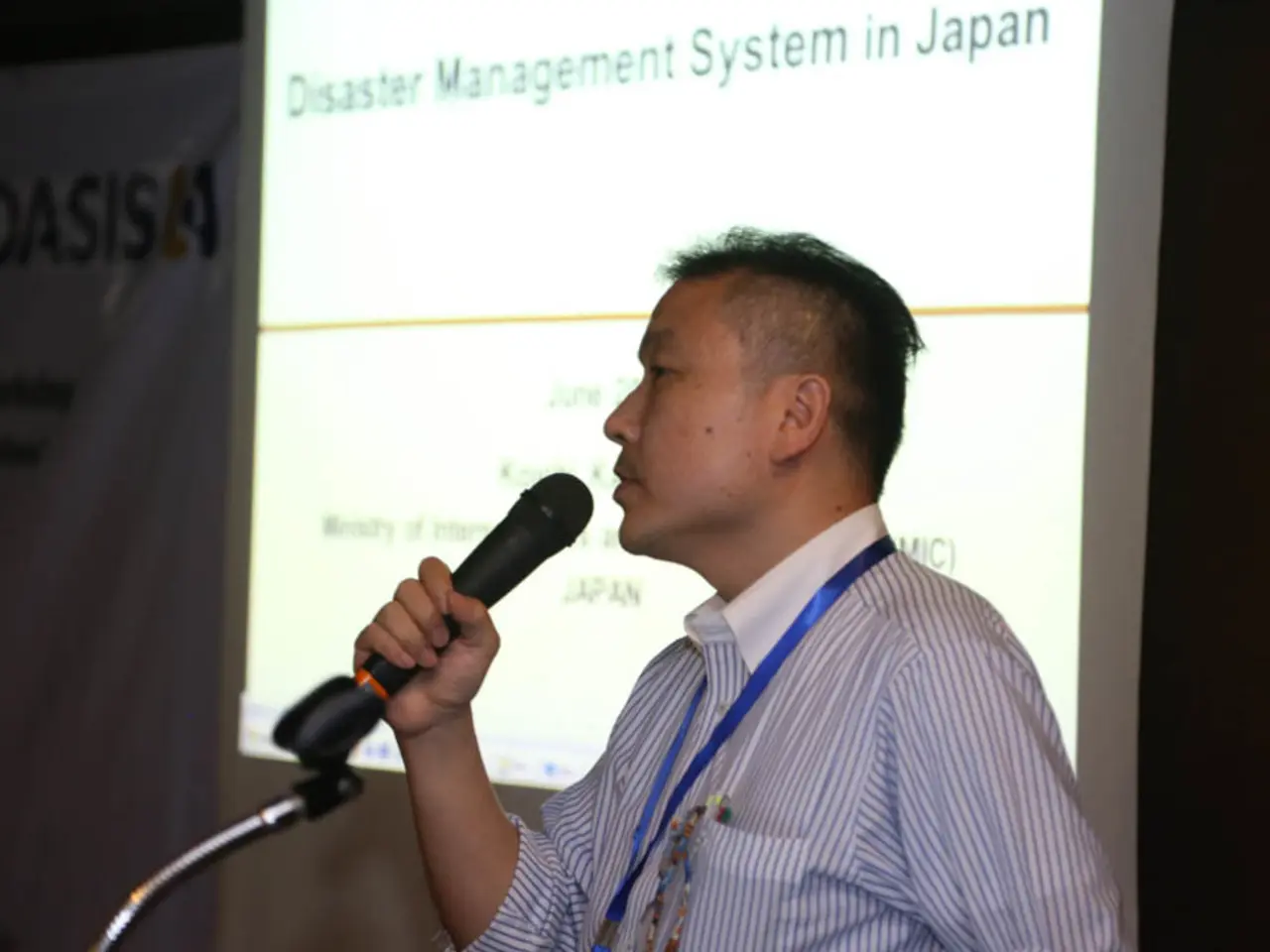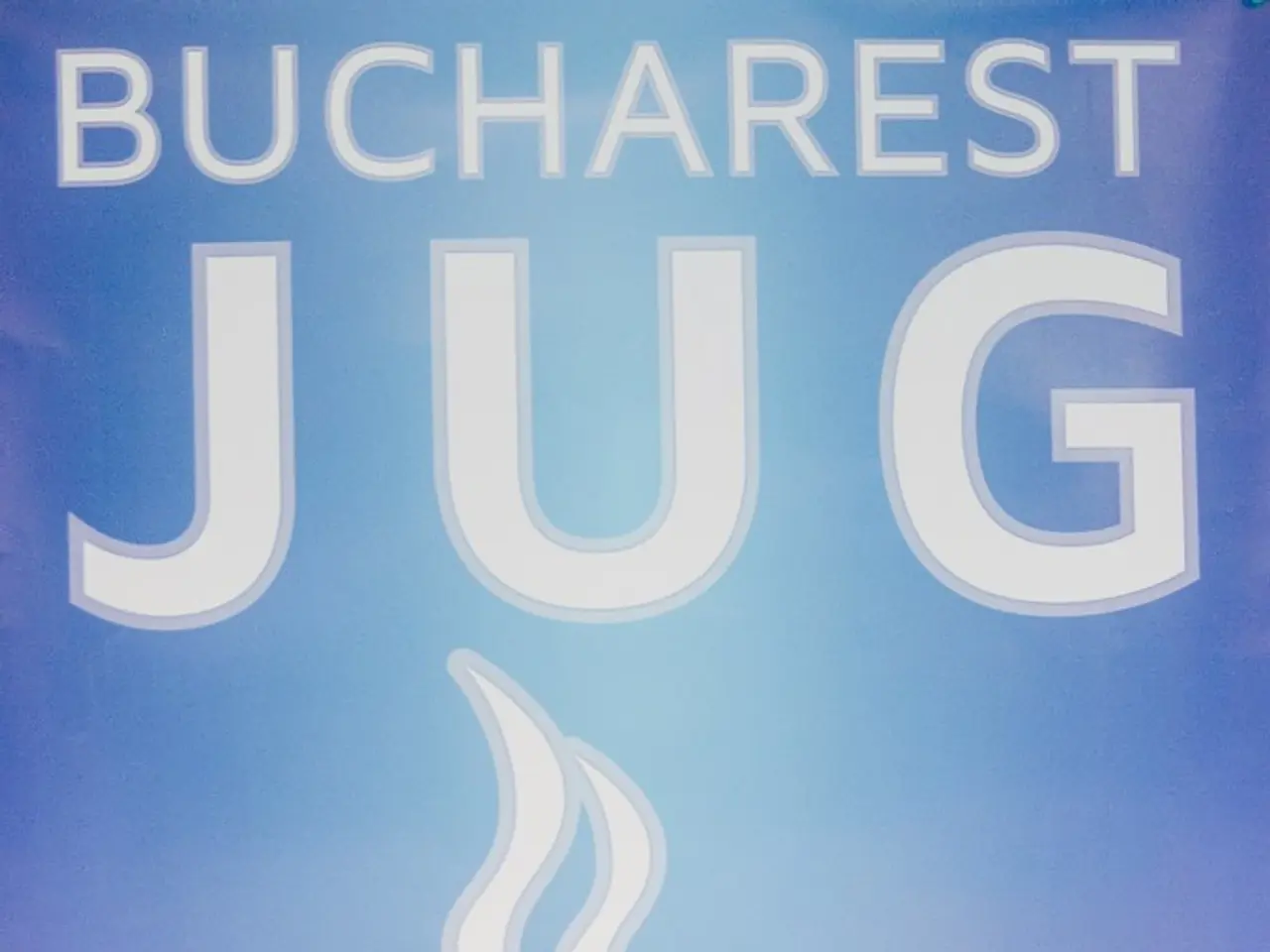Syrian Leader Meets with Macron in Paris: A Towering Controversy
French President Embraces Lifting Sanctions on Syria Following Talks with Interim Leader al-Sharaa
In an explosive turn of events, Syria's interim President Ahmed al-Sharaa sat down with French President Emmanuel Macron at the Elysée Palace, stirring a whirlwind of controversy. This high-stakes meeting marked Al-Sharaa's maiden voyage to Europe since assuming office following Bashar al-Assad's regime's fall in December 2024.
For Al-Sharaa, this encounter served as a platform to present a more temperate image to the skeptical European nations. As Macron addressed the press alongside Al-Sharaa, he balanced his support with firm expectations. "Syria must seize the challenge of the path towards civil peace and unity," he stated.
Macron indicated his intention to ease the sanctions laid against Assad's regime, provided the Syrian interim government demonstrated a commitment to justice and reforms. He vowed to lobby the European Union to abandon the antiquated sanctions on Syria. Al-Sharaa, in turn, denounced the current sanctions as an impediment to recovery, arguing that they were imposed upon Assad and his regime, not the present government.
Macron underscored the Islamic State group (IS) as Syria's gravest peril and urged the United States to maintain its military operations against the Islamic State while considering retracting the imposed sanctions on Syria.
For the Protection of All Syrians, Regardless of Faith, Macron Urges Al-Sharaa
The American forces have begun to pull hundreds of troops from northeastern Syria during the past few weeks.
Macron, stressing that France would not interfere, emphasized the Syrian leader's responsibility to safeguard "all Syrians, regardless of faith." The French leader referred to the March attacks in western Syria, which claimed 1,700 lives mainly from the Alawite community, and recent clashes with the Druze communities as evidence of the need for protective measures.
This rendezvous has sparked furious disagreement in French political circles. Al-Sharaa is closely tied to the Islamist rebel group Hayat Tahrir al-Sham, earning him a contentious reputation. Al-Sharaa remains under a United Nations travel ban, and Macron sought an exemption to enable Al-Sharaa's entry.
Reacting to the criticism from French political parties, Macron dismissed the notion that diplomacy should be restricted to fellow travelers. "Have we conversed solely with people we wholeheartedly agreed with?" he questioned, asserting that the interim government has embarked on the initial stages of a more democratic future.
Related
- Saudi Arabia and Qatar to Repay Syria’s Debts to the World Bank
- Syria's Interim Leader Ahmad al-Sharaa Visits Paris in First Official European Trip
Enrichment insights: The Macron administration is curating a pragmatic, engagement-centric approach to cultivate stability and the potential revival of Syria. The meeting with Al-Sharaa underlines France's intention to protect the rights of all Syrians, tackle extremist elements, and urge the United States to delay further troop withdrawals from Syria. Macron's decision has sparked heated debate across France's political spectrum over the legitimacy and wisdom of engaging with a controversial figure still under a UN travel ban.
- Despite criticism from French political parties, President Emmanuel Macron defended his meeting with Syria's interim President Ahmed al-Sharaa, arguing that diplomacy should not be restricted to those with whom one agrees completely.
- Citing the need to protect the rights of all Syrians, especially those from minority communities such as the Alawites and Druze, Macron urged Al-Sharaa to ensure the safety of all citizens, regardless of their faith.
- In an effort to foster stability and potential revival in Syria, the Macron administration is advocating a pragmatic, engagement-focused policy and legislation.
- Amidst the ongoing war-and-conflicts in Syria, President Macron has encouraged the United States to maintain military operations against the Islamic State while reconsidering the sanctions imposed on Syria, particularly in light of the general-news regarding the role of the Syrian interim government in facilitating accessibility and pursuing reforms.










